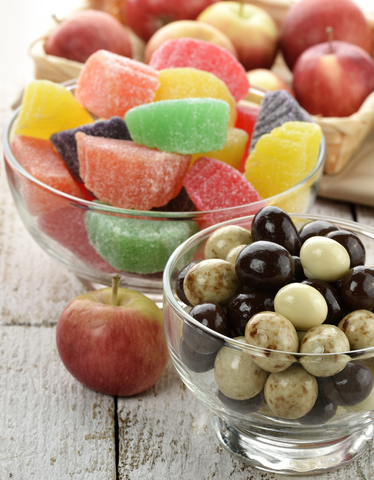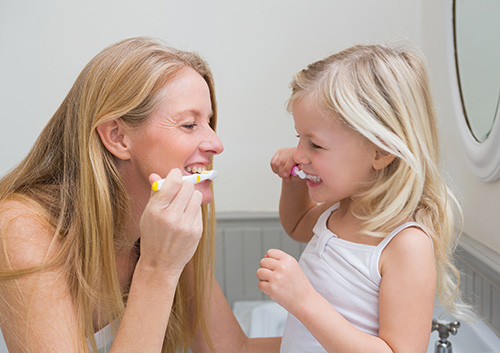October 3rd, 2017

A solid oral health routine begins with daily brushing, flossing, and rinsing. Without a consistent oral health regimen, you may begin to experience tooth decay and bacterial infections. Few patients ask Dr. Frech about different mouthwash options, so we’ve put together a list of the conditions that mouthwashes can treat. This should help you decide which oral rinse would be best for you.
Gum Health
Antiseptic mouthwashes reduce large amounts of bacteria on and near the gum line and generally help to decrease your chances of developing gingivitis. The key ingredients of antiseptic mouthwashes are antibacterial and antimicrobial items. Antiseptic mouthwash is a preferable option if you are concerned about the general gum health of your mouth.
Fluoride
Fluoride is a great tool for preventive tooth decay treatment. It prevents tooth decay and is great for oral health in general because it kills germs that can live in your mouth. Fluoride also builds stronger teeth. If you’re a bottled water drinker, Dr. Frech may recommend that you purchase a simple fluoride rinse to use after brushing.
Bad Breath
Fluoride mouthwash can be used to fight any bad breath issues you may be facing. It’s designed to combat any bacteria that might be building up in your mouth. Most mouthwashes will help eliminate bad breath, but some are specifically designed to address this difficult problem. If you feel as though this might be turning into a chronic problem, please contact Dr. Frech to discuss other options that would be effective for treating your symptoms.
American Dental Association (ADA Approval)
The ADA reviews all mouth rinses for safety measures and to prove effectiveness. Any mouthwash approved by the ADA has met strict guidelines according to whether the manufacturer’s claims are supported with scientific evidence. If you’re looking for a quality mouthwash, look for one that has the ADA seal of approval to ensure you have a great rinse for your mouth.
Considerations
When you’re trying to decide which mouthwash to pick, contact our Wichita Falls, TX or ask Dr. Frech during your next appointment. If you experience a burning sensation in the soft tissues of your mouth, be sure to discontinue use immediately. Avoid letting children under age six use a mouth rinse, and be sure to keep all mouthwashes out of the reach of children, because they contain alcohol and other substances that could be harmful.
September 26th, 2017

You can learn just about anything on the Internet these days. You can also order just about anything on the Internet these days.
But would you order your braces on the Internet? There’s a new trend involving websites that claim to offer a solution for straightening teeth, without your ever seeing a dentist or orthodontist in person.
These companies usually have patients take an impression of their teeth using putty and a tray. Then you mail the impressions back to the company where a dentist reportedly examines them and suggests a course of treatment using 3D modeling software.
A series of clear aligners are made, to be worn by the patient in order to attain the desired result. Although this form of orthodontic treatment may cost less than seeing an orthodontist in person, there are several reasons why you should avoid it:
- Potential health hazards are missed: If your oral health is not up to par (e.g., you have cavities, gingivitis, chipped teeth, etc.), an orthodontist would not suggest orthodontic treatment. Only after these issues are addressed would treatment be considered as an option. Whether this is the case with a person can’t be known when all the doctor sees is a set of impressions.
- Lack of information about the patient: Before you receive any orthodontic treatment, an orthodontist will have X-rays taken to make sure you are a good candidate. If the bones or teeth do not look like they would align properly with treatment, another course of care may be suggested, even necessary. None of this background is available to over-the-net orthodontic providers.
- No regular checkups: The purpose of regular checkups with Dr. Frech is to ensure that everything is moving properly, on schedule, and most important, safely. This lack of hands-on care with Internet orthodontics could be a hazard for you as a patient and has the potential to do more harm than good.
It’s not worth the risk of getting orthodontic treatment over the net just to save some money. Our Wichita Falls, TX office is committed to working with you, whatever your financial situation may be.
Let’s work together to give you the smile you deserve!
September 19th, 2017

Now that you have braces, it is more important than ever to maintain good oral hygiene during your treatment, as Dr. Frech will tell you. While we trust you will continue brushing and flossing on a regular basis throughout your treatment at Wichita Falls Orthodontics, you also have to mindful of what you eat. While all those sweet, sour, and sticky candies may taste great, these treats can actually damage your teeth and braces!
Sour candies can be acidic to your teeth, and actually wear down the enamel that protects them, resulting in tooth decay and cavities. If you do indulge in eating these candies at some point during your treatment, be sure to wash your mouth out with water, drink milk or eat a few slices of cheese. These foods will help neutralize the acid in your mouth.
Besides cavities and tooth decay, many people do not realize that good oral health and hygiene are important to your overall health, too; researchers have discovered the connection between periodontal disease and other major health concerns, such as heart disease. Therefore, it is important to maintain a good oral hygiene routine just as you did before your braces. This includes visiting your dentist here in Wichita Falls, TX every six months, brushing and flossing daily, and using an antibacterial mouthwash, as well as visiting Dr. Frech for your regular adjustment appointments.
For more questions about foods you should avoid while wearing braces, or if you have any general questions about your treatment, we encourage you to give us a call, ask us at your next adjustment appointment or ask us on Facebook!
September 12th, 2017

Brushing your teeth regularly is one of the most crucial parts of maintaining good oral health, and perhaps the most fundamental, however, there are also other elements involved. Flossing, for instance, is also vital; some experts would say, and Dr. Frech and our team would agree, that it holds just as much importance as brushing your teeth. To give you a better idea of why, here are some reasons that flossing is so vital to your oral health.
Getting in-between the Teeth
While brushing your teeth effectively cleans all of the areas of your teeth that are visible, or otherwise not touching, flossing is vital because it reaches all of the areas between your teeth that you cannot see, and subsequently cannot clean using a toothbrush. These areas are among the most sensitive and vulnerable parts of your mouth because they are most susceptible to plaque and tartar buildup.
Reducing Bad Breath
It is not uncommon for someone who brushes their teeth once or twice a day to still have bad breath. The reason being is that bad breath is often created by smelly bacteria that lives in between your teeth, as well as other areas of your mouth that are not accessible using a toothbrush. And that is why flossing is one of the best ways to reduce or eliminate bad breath. Still skeptical? Try flossing your teeth with unscented floss, then smell it after, that awful scent is the source of your bad breath. Coupled with frequent brushing of your teeth, you will find that flossing can really help that stinky breath.
Brushing your teeth twice a day is hard enough, add flossing on top and it can be difficult to establish a regular habit. However, doing so is totally worth it; just look at the aforementioned reasons why. Use these for motivation the next time you don’t feel like flossing, and let us know if it worked at your next visit to our Wichita Falls, TX office.





